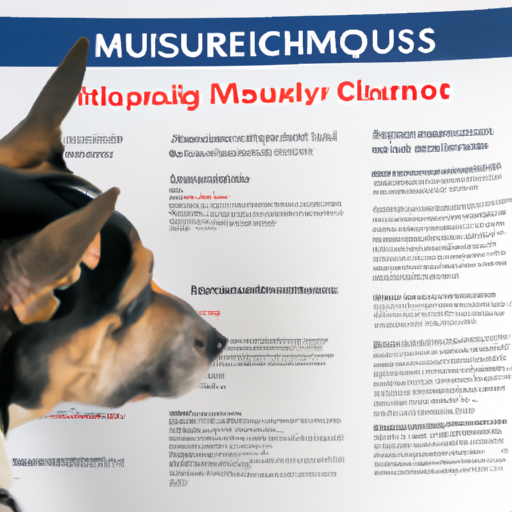Understanding Masticatory Muscle Myositis (MMM)
Masticatory Muscle Myositis (MMM) is a condition affecting your dog’s muscles, specifically those used for chewing. It is an inflammatory disease, and it can cause severe discomfort for your furry friend. Imagine the pain you feel during a bad headache, and you can begin to understand what your dog might be going through.
Identifying the Symptoms of MMM
You know your dog better than anyone, and you’re often the first to notice when something is off. Here are some symptoms to look out for:
- Difficulty in opening the mouth
- Loss of appetite
- Swelling on the sides of the head
- Excessive drooling
Remember, these symptoms can also indicate other conditions. It’s crucial to consult a vet for a proper diagnosis.
Causes and Diagnosis of MMM
The exact cause of MMM is still unknown. However, it’s believed to be an autoimmune disease. This means your dog’s immune system mistakenly attacks its own body, specifically the 2M fibers in the masticatory muscles.
Your vet will use a combination of tests to diagnose MMM. These may include:
- Blood tests
- Biopsy of the muscle tissue
- Antibody tests
Treatment Options for MMM
Once diagnosed, your vet will recommend a treatment plan for your dog. This might include:
- Corticosteroids to reduce inflammation
- Physical therapy to maintain muscle function
- Pain management strategies
In severe cases, your vet may recommend hospitalization. Remember, your vet is your best resource for information about your dog’s health.
Prognosis and Prevention of MMM
While MMM can be a scary diagnosis, many dogs respond well to treatment and can lead a happy, normal life. Regular check-ups are essential to monitor your dog’s condition and adjust treatment as necessary.
There is currently no known way to prevent MMM. However, early detection can significantly improve your dog’s prognosis. So, keep a close eye on your fur baby and don’t hesitate to seek veterinary care if you notice anything unusual.
| Symptoms | Possible Reason |
|---|---|
| Difficulty opening mouth | MMM or Dental Problem |
| Swollen sides of head | MMM or Allergic Reaction |
Frequently Asked Questions
Q: Can MMM be cured?
A: While there is no cure for MMM, the condition can be managed effectively with treatment.
Q: Is MMM contagious?
A: No, MMM is an autoimmune disease and cannot be passed from one dog to another.
Q: Can my dog live a normal life with MMM?
A: Yes, many dogs with MMM can lead a happy, normal life with proper treatment and care.
Remember, as a caregiver, your role is crucial in your dog’s journey with MMM. Stay vigilant, ask questions, and provide all the love and support they need.



